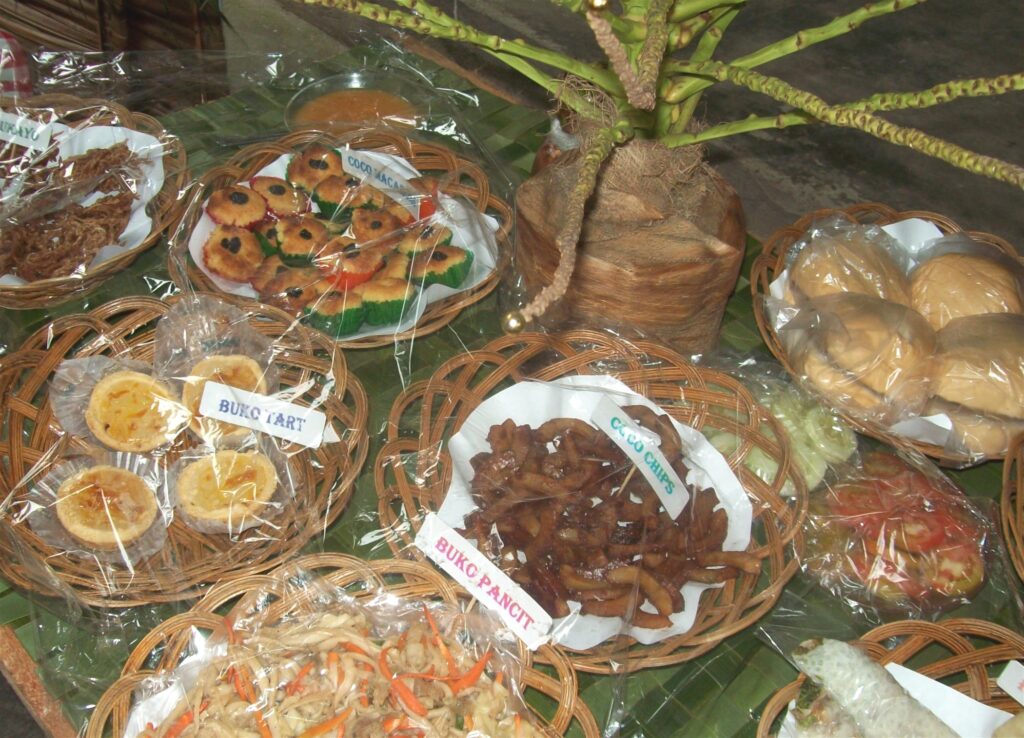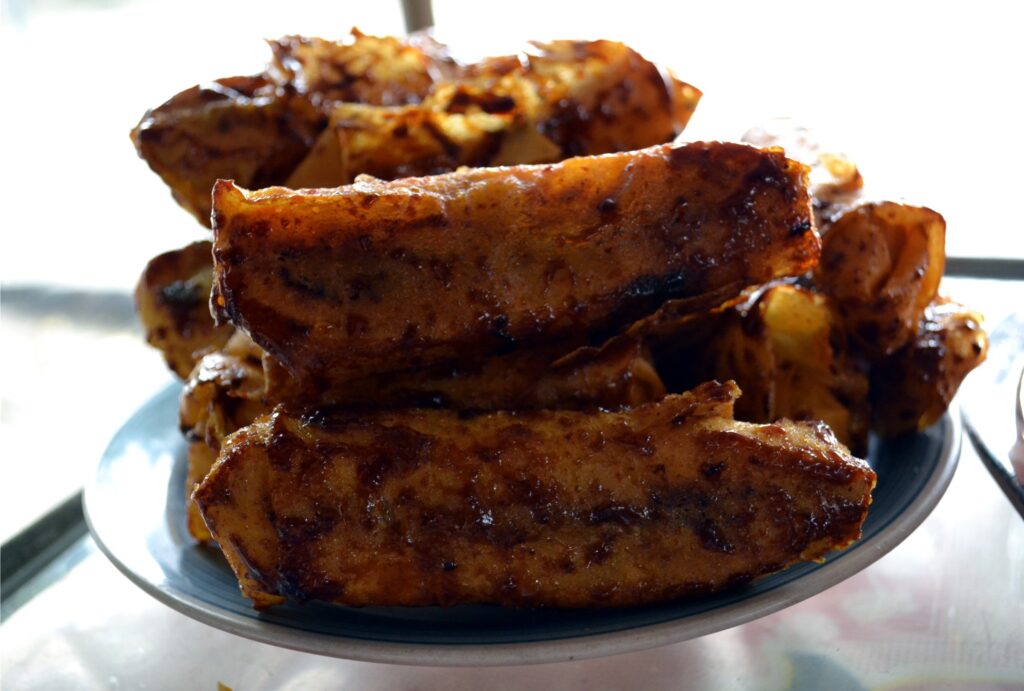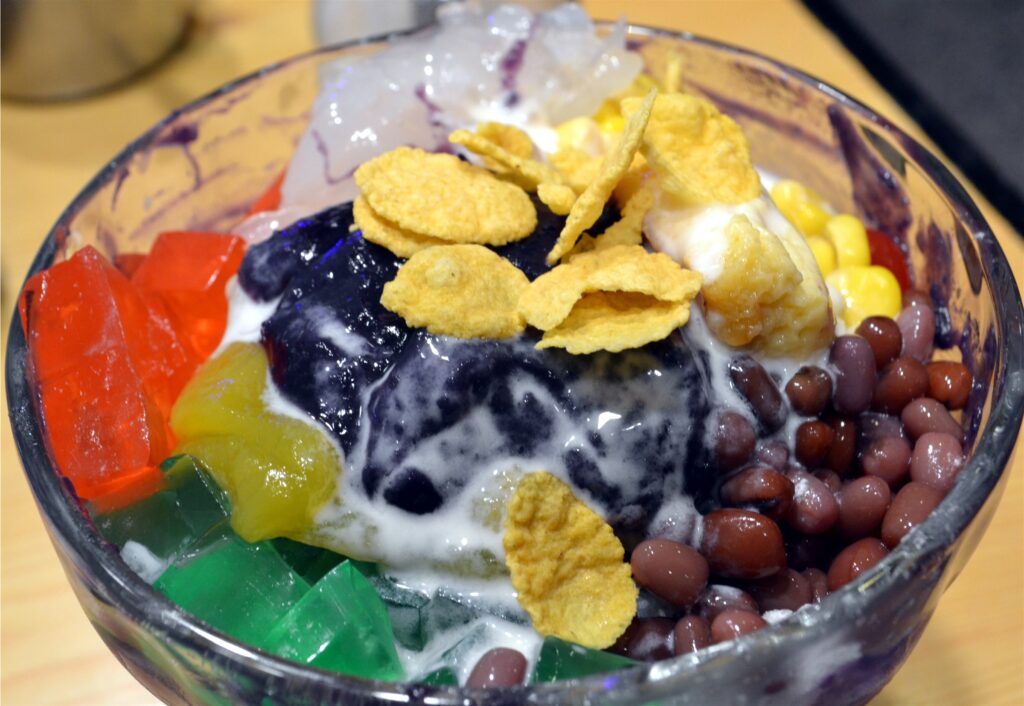Text and Photos by Henrylito D. Tacio
In the Philippines, there is no data as to how much sugar an average adult consumes. But a study commissioned by the Center for Research and Development of the University of Asia and the Pacific showed that, on a per capita basis, the Ilocos region, Metro Manila, and Central Luzon had the highest usage in 1993 at 18.3 kilograms, 18.0 kilograms, and 16.6 kilograms, respectively.
All the other regions, including two in Luzon and seven in Visayas and Mindanao, recorded a per cap consumption below the national average. Per capita consumption for all regions ranges from 11 kilograms to 13 kilograms.
On-demand by different user groups, the study concluded that the country’s total consumption grew by 3.5% annually for the same period. The household sugar consumption rose by 3.5% while the industrial use increased by 4.6%.
“Sugar was once a luxury ingredient reserved for special occasions,” wrote Tiffany O’Callaghan, an editor in the Opinion section at New Scientist. “But in recent years it has become a large and growing part of our diets. If you eat processed food of any kind, it probably contains added sugar. You can find it in sliced bread, breakfast cereals, salad dressings, soups, cooking sauces and many other staples. Low-fat products often contain a lot of added sugar.”

‘Public enemy no. 1’
Just like salt, eating too much sugar is doing us no good. As a matter of fact, sugar is being touted as public health enemy number one: as bad if not worse than fat, and the major driving force behind obesity, heart disease, and type II diabetes. Some researchers even contend that sugar is toxic or addictive.
It is no wonder why health bodies are waging “a war on sugar.” The Geneva-based World Health Organization (WHO) wants people to cut sugar consumption radically. In the United States, doctors and scientists are pressing food companies to reduce sugar and be more open about how much they add. In the United Kingdom, a group called Action on Sugar has launched a campaign to ratchet down sugar.
But is sugar really that bad?
Sugar used to be called “white gold,” which is the generalized name for a class of chemically-related sweet-flavored substances, mostly used as food. They are carbohydrates composed of carbon, hydrogen, and oxygen. There are various types of sugar derived from different sources. Simple sugars are called monosaccharides and include glucose (also known as dextrose), fructose, and galactose.
The table or granulated sugar most customarily used as food is sucrose, a disaccharide (in the body, sucrose hydrolyses into fructose and glucose). Other disaccharides include maltose and lactose. Chemically-different substances may also have a sweet taste but are not classified as sugars. Some are used as lower-calorie food substitutes for sugar described as artificial sweeteners.
Mounting evidence suggests that flooding your system with sugar-sweetened beverages – such as soft drinks, fruit drinks, iced tea, and sports drinks – may increase your risk of diabetes.

Cardiometabolic risk
A recent study published in the journal Diabetes Care examined more than 310,000 patients and found that those who drank 1-2 servings of the sweet stuff a day were 26 percent more likely to develop type 2 diabetes than those who drank it once a month or not at all.
“The reason is twofold: Loading up on sugar-sweetened beverages tends to lead to weight gain, which is a risk factor for diabetes,” writes Dr. Jacob Teitelbaum, author of Beat Sugar Addiction Now! “Previous studies have found that those who toss back high-calorie drinks tend not to cut calories elsewhere from their meals. Second, sugar-loaded drinks deliver a quick rush of sugars to your body, which over time can lead to insulin resistance and inflammation.”
Gary Taubes, in an article which appeared in The New York Times, noted: “In 1924, Haven Emerson, director of the institute of public health at Columbia University, reported that diabetes deaths in New York City had increased as much as 15-fold since the Civil War years, and that deaths increased as much as fourfold in some U.S. cities between 1900 and 1920 alone. This coincided, he noted, with an equally significant increase in sugar consumption — almost doubling from 1890 to the early 1920s — with the birth and subsequent growth of the candy and soft-drink industries.”
Eating an excessive amount of fat isn’t the only thing that increases your risk of heart disease. “A diet rich in sugar can also hurt your heart,” points out Emily G.W. Chau, an American health journalist. In fact, some studies found that sugar plays a direct role in the health of your ticker.
A study published in the Journal of the American Medical Association found that people who took in more than 17.5 percent of their calories from added sugars were 20-30 percent more likely to have high levels of triglycerides, a type of fat that’s found in your blood. When you consume more sugar than you need for energy, the excess sugars form triglycerides, which are then stored in fat cells.
The same study found that people who got 25 percent or more of their calories from added sugars were more than 3 times more likely to have low levels of HDL (the good cholesterol that helps prevent plaque buildup by carrying cholesterol from your arteries to your liver, where it is then excreted) than those whose diets included less than 5% sugar. Both high triglycerides and low HDL levels contribute to atherosclerosis – the hardening of your arteries – a condition that increases your risk of heart disease, stroke, and heart attack.

Depression, behavioral disorders
Those who eat diets rich in sugar are most likely to be depressed. Studies have shown that there is a direct link between mood and blood sugar balance. All carbohydrate foods are broken down into glucose, and your brain runs on glucose—the more uneven your blood sugar supply, the more uneven your mood.
According to research published in the British Journal of Psychiatry, people diagnosed with schizophrenia. They ate a sugar-heavy diet were more likely to be hospitalized in a 2-year follow-up period.
“Behavioral disorders, in general, are affected by massive swings in sugar,” explains Dr. Teitelbaum. “When you eat a lot of sugar , your blood sugar levels shoot way up and then go way low. These fluctuations drive your metabolism and mood nuts . And when someone is schizophrenic, he already has a hair-trigger.”
Cancer may be triggered, too, if you eat too much sugar. “The sugar-cancer connection is compelling and scary,” says Connie Bennett, author of Sugar Shock!, pointing to in vitro studies that show cancer cells feed on sugar to fuel their growth and proliferation.

‘Glucose guzzlers.’
While it’s not proven that sugar fuels cancer growth in the body, it is a known fact that obesity – a likely effect of eating too much sugar – increases your risk of developing a number of cancers and that both sugar and insulin fuel cancer-cell growth.
“We were surprised to realize that changes in our metabolism caused by dietary sugar impact on our cancer risk,” said Dr. Custodia Garcia-Jiminez at the University Rey Juan Carlos in Madrid. “We are now investigating what other dietary components may influence our cancer risk. Changing diet is one of easiest prevention strategies that can potentially save a lot of suffering and money.”
Several other studies indicate a strong relationship between sugar consumption and an increased risk of cancer. The University of Minnesota researchers looked at more than 60,000 patients over 14 years and found that people who drank two or more soft drinks a week had an 87% higher risk of developing pancreatic cancer.
“If God hadn’t meant for us to eat sugar, he wouldn’t have invented dentists,” said Ralph Nader, an American activist, and author. But Luc Tappy, a physiologist at the University of Lausanne in Switzerland, disagrees: “You cannot live without essential fats. You cannot live without protein. It’s going to be difficult to have enough energy if you don’t have some carbohydrate. But without sugar, there is no problem. It’s an entirely dispensable food.”

